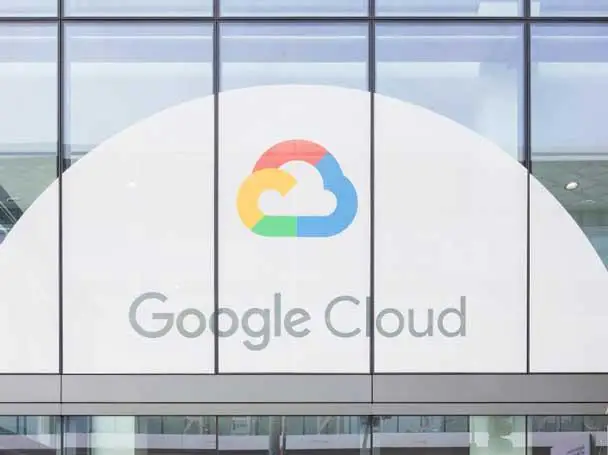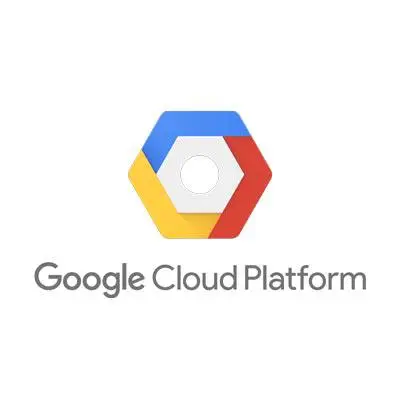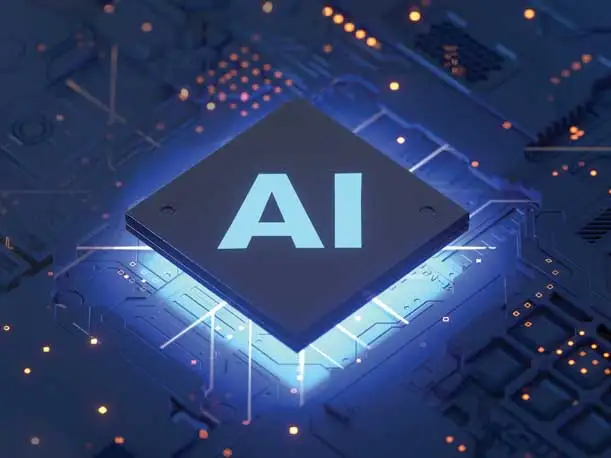Top 10 Biggest Google Cloud News Stories Of 2023: AI, Profitability And Layoffs
Here are the 10 most important Google Cloud news stories of 2023—from generative AI innovation and Google’s partner push to layoffs and its $2 billion investment in Anthropic.

From meeting the generative AI moment head-on to becoming profitable for the first time in its history, Google Cloud captured the spotlight throughout 2023.
The focus of the $33 billion Mountain View, Calif.-based cloud giant this year was clear: become front and center in the artificial intelligence arms race against the likes of AWS and Microsoft. Google Cloud achieved that through a slew of investments in Google partners, unicorn startups and AI product innovation.
[Related: Thomas Kurian On Google Cloud’s AI Differentiators Vs. Rivals AWS, Microsoft]
“From small to large companies, we see tons of interest [in GenAI], and it’s the one time where we’ve seen the demand emerging globally,” Google Cloud CEO Thomas Kurian recently told CRN. “AI is the new frontier.”
CRN breaks down the 10 most important Google Cloud stories of 2023 that you need to know about.

No. 10: Google Cloud GenAI Future Lies With AI MSPs
Google Cloud unveiled its AI strategy for the future to CRN. The partner-first cloud computing giant is looking to enable and incentivize Google partners to become a next-generation AI lifecycle MSP, tasked with transforming the business of every Google customer.
“Our view of what AI models do is take every role in a company—marketers, customer services, salespeople, etc.—they now have a digital expert that can collaborate with them,” Kurian told CRN. “A partner can build an entire business, a brand-new business, using AI models to do that.”
Google Cloud’s strategy is to attach partners to 100 percent of all deals, making the channel critical to Google’s market success.
Building and managing a customer’s AI life cycle is the biggest money-making services opportunity partners have ever witnessed as solution providers are poised to discover new use cases outside IT departments, build and maintain a customer’s AI models and constantly fine-tune and upgrade customer data. Google Cloud executives said customers are yearning for partners to help them identify AI use cases, the potential risks, and then prioritize use cases with the highest impact and lowest risk.
“Every role will transform over the coming years in every organization. It’s an opportunity for partners to think about, ‘How can I use this technology to reimagine that role? And what are the software packages and services I create for it?’” said Kurian.
The Takeaway: Google Cloud formed a blueprint in 2023 to leverage partners as the tip-of-the-spear for its massive AI charge. Kurian’s strategy is to remold channel partners into AI experts who are focused on driving business outcomes via continuous AI lifecycle services.

No. 9: Google Cuts 12,000 Employees
At the start of 2023, the biggest news in the industry was the massive number of tech layoffs conducted by IT companies of all shapes and sizes—from the likes of Microsoft and Salesforce to companies like Twilio and Marvell.
In January, Google parent company Alphabet unveiled it would be laying off 12,000 employees or about six percent of its global workforce.
Alphabet CEO Sundar Pichai said his company hired too many people in 2021 and 2022 during the COVID-19 pandemic. “Over the past two years we’ve seen periods of dramatic growth. To match and fuel that growth, we hired for a different economic reality than the one we face today,” Pichai said in January.
However, as of late September, Google’s headcount hasn’t drastically lowered.
As of September 2023, Google’s total headcount was 182,381. In September 2022, the company’s headcount was 186,779—about 4,400 more. During each Google quarterly earnings call in 2023, executives said the company will still be investing in priority areas, specifically for top engineering and technical talent.
The Takeaway: As of September 2023, Google’s headcount only lowered 2 percent year over year. This means the initial 12,000 layoffs didn’t significantly impact Google. These numbers, as well as Google’s pledge to continue hiring top technical talent, bodes well for Google Cloud employees in 2024.
Click through to read the eight other biggest Google Cloud stories of 2023.

No. 8: Google Workspace—Gmail, Meet, Docs, Sheets—Revamped With GenAI
Google Workspace—the company’s suite of collaboration and productivity applications such as Gmail, Meet, Docs and Calendar—was revamped in 2023 with new generative AI features and pricing.
The new Duet AI For Google Workspace brought together all of Google’s powerful generative AI features and lets users collaborate with AI so they can get more done every day.
Google injected new GenAI writing capabilities into Gmail and Docs that creates content instantly when users simply type in a topic. For Google Meet, users can generate new backgrounds and capture notes from meetings. Google Slides users can bring to life their creative vision with auto-generated images, audio and video. For Google Sheets, customers can go from raw data to insight and analysis via auto-completion, formula generation and contextual categorization inside Sheets.
Additionally, Google’s AI chatbot Bard now pulls data from users’ Gmail, Drive and Docs accounts to better help people find the information and answers they’re looking for, compared with Bard just leveraging data from the internet.
On the security front, Google implemented new AI-powered security features in Google Workspace including enhanced data loss prevention control in Gmail, the ability to automatically classify and label data in Google Drive, as well as new client-side encryption enhancements to improve digital sovereignty.
The Takeaway: Google Workspace was taken to the next level in 2023 thanks to a slew of new AI features that will undoubtably elevate the entire portfolio. It appears that when Google creates new generative AI technology, it soon become part of Workspace which will continue in 2024.

No. 7: No Upfront Commitment Needed For Google Cloud Anymore
In a bold move to win more market share and new customers, Google Cloud launched Flex Agreements in 2023 which allows customers to migrate their workloads to the cloud with no up-front commitments.
The move lowers the barrier of entry for businesses to move to the Google Cloud Platform (GCP) without needed a large upfront or multi-year financial commitment.
As part of this new Google licensing option, customers still get access to Google Cloud incentives such as cloud credits and monthly spending discounts. Customers previously needed an upfront commitment—such as signing a large multi-year Google Cloud commitment—in order to reap the benefits of a certain set of incentives like cloud credits or discounts based on monthly spending or committed use.
The three new pricing editions: Standard, Enterprise, and high-end Enterprise Plus tier as part of its cloud portfolio.
The Takeaway: This move likely helped Google Cloud sales in 2023 by removing a financial barrier of entry for budget-constraint customers to start consuming GCP. By leaving the door wide open to brand new businesses, Google strategy is to eventually win over these customers from competitors.

No. 6: The AI Startup Race: Google Invests $2 Billion In Anthropic
The generative AI arms race between Google, Microsoft and AWS was one of the most interesting stories to follow throughout 2023, as the three cloud titans all poured billions of dollars into AI startups.
Microsoft doubled down on ChatGPT owner OpenAI by investing billions into the startup. AWS formed a blockbuster partnership with Anthropic following an up to $4 billion investment in the company with AWS becoming a minority owner of the startup.
For its part, Google unveiled a $2 billion invest commitment, which included a $500 million upfront cash and an additional $1.5 billion investment over time. The investment will see Anthropic leverage Google’s Cloud TPU v5e ships for AI inference, Anthropic use Google Cloud’s security services, and a broader partnership around responsible AI.
“This expanded partnership with Anthropic, built on years of working together, will bring AI to more people safely and securely, and provides another example of how the most innovative and fastest growing AI startups are building on Google Cloud,” said Kurian last month.
The Takeaway: Google’s move to invest in and form a tighter partnership with one of the world’s brightest AI startups was the correct strategy. However, compared to Microsoft and OpenAI as well as AWS’ own alliance with Anthropic, Google Cloud’s relationship with AI unicorns didn’t appear as strong as its rivals in 2023.

No. 5: AI Innovation Engine On Fire As New Products Debut
Google Cloud’s AI innovation engine was revving in 2023 as the company launched a slew of new products this year all revolving around AI.
Google’s new flagship Vertex AI platform allows businesses to interact, customize and embed foundation AI models inside their applications, along with its Model Garden where customers can access and fine tune foundation models.
One of the biggest splashes the company made in the GenAI market this year was the launch of its conversational AI service Bard. Google’s AI chatbot Bard uses machine learning to answer user questions, generate text, translate languages and much more.
In order to make AI accessible and open-sourced for developers, Google launched its new PaLM API this year that can build applications with a customers’ own data or on top of external data sources. PaLM provides access to models that are optimized for multi-turn use cases—such as content generation and chat, and general-purpose models.
Google launched its new Duet AI collaboration assistant, which can help users write code, create articles and even be a data analyst. On the security front, Google Cloud launched its new Security AI Workbench AI platform which includes a set of GenAI tools that leverages Google’s new security-specific LLM Sec-PaLM.
Google Cloud also injected new GenAI features into its most popular products in 2023 such as BigQuery, Workspace and GCP, to name a few.
The Takeaway: Google Cloud flooded the generative AI market this year with a broad suite of solutions to rival any AI company. The pace of AI innovation in 2023 from Google Cloud bodes well for a bright AI future in 2024.

No. 4: Google Cloud Grows Sales Faster Than AWS, Microsoft
Google Cloud’s run rate is currently the highest in the company’s history at $33.6 billion. For each quarter in 2023, Google Cloud’s year-over-year sales growth was higher than rivals AWS and Microsoft.
In first quarter 2023, for example, Google Cloud grew sales by 28 percent year over year, compared to 16 percent at both AWS and Microsoft.
Most recently in its third quarter of 2023, Google Cloud increased revenue by 22 percent, compared to Microsoft, which increased sales by 19 percent year over year, and AWS, which reported a 12 percent revenue increase year over year in Q3 2023.
As of Q3 2023, AWS owns 32 percent global cloud market share, followed by Microsoft at 23 percent share, then Google Cloud at 11 percent share.
In 2018, Google Cloud was generating annual revenue of $5.8 billion. This year, Google Cloud’s annual revenue stands at $33.6 billion, representing a whopping 479 percent revenue increase in just five years.
The Takeaway: Although both Microsoft and AWS generate more total cloud revenue than Google Cloud, the rate at which Google Cloud increased sales in 2023 shows how competitive it has become in just a few years on a global basis. Google Cloud needs to keep up this type of sales growth pace in 2024 if it ever wants to become the No. 2 cloud market share player.

No. 3: Cloud Migration Program And Partner Push
CEO Thomas Kurian wants every deal to have a partner attached to it, as he says partners are the reason for Google Cloud’s meteoric sales growth over the past five year.
“We started with a very simple premise: Our success has to drive our partner success, and our partner success has to drive our success. So we didn’t look at the business as a fixed pie where we give business to our own consultants versus the partners. We said, ‘This is going to be the bigger the pie, the better for everybody,’” Kurian told CRN.
This year, Google Cloud launched its biggest cloud migration program ever with its Rapid Migration Program (RaMP).
Google is aiming to accelerate cloud migrations to Google Cloud 10 times faster with RaMP which accelerates the process by placing all of Google’s products, programs and engagement models into the unified program. The program includes a new RaMP Deck that closely tracks large-scale migrations between the customer, partner and account teams, as well as a robust inventory of tools to help automate migrations. Google Cloud Migration Specialization partners were on-boarded into the program with the ability to generate larger financial incentives and more resources available.
Google Cloud is also investing heavily in GenAI training with Google partners already completing a total of over 100,000 AI courses. In addition, Kurian said Google is investing heavily in demand generation and lead generation for partners by running events to teach customers and potential customers about AI.
The Takeaway: RAMP was just one of many program enhancements Google Cloud created this year to push the channel to win more market share. These innovative incentive programs and backing from Kurian are necessary if Google Cloud wants to keep partner mindshare.

No. 2: Google Cloud Becomes Profitable
For the first time in its history, Google Cloud became profitable in 2023.
Profitability alluded the company for years as it grew its employee headcount, data center infrastructure footprint and product portfolio to match the likes of Amazon and Microsoft.
In the first quarter of 2023, Google Cloud reported profitability of $191 million, up from an operating loss of $706 million the year prior.
In the second quarter of 2023, Google Cloud generated a profit of$395 million compared with a loss of $590 million year over year, representing a nearly $1 billion operations improvement.
During the third quarter of 2023, Google Cloud maintained profitability for the third straight time by reporting an operating profit of $266 million compared with a loss of $440 million year over year.
The Takeaway: Google Cloud entered its profitability era in 2023, which was no small feat. AWS is currently Amazon’s most profitable business unit. It will be interesting to see just how important Google Cloud will become to Google in 2024 and beyond now that it’s generating profits.

No. 1: Google Makes Generative AI Its Biggest Priority And Succeeds
“[AI] will touch every sector, every industry, every business function, and significantly change the way we live and work,” said Google CEO Sundar Pichai on stage at Google Cloud Next 2023 in August. “This isn’t just the future. We are already starting to experience the benefits right now. As a company, we’ve been preparing for this moment for some time.”
Simply put, Google Cloud met the moment of the GenAI revolution in 2023.
From all the new product innovation and investments in generative AI this year, Google Cloud set itself up to be a leader in the GenAI race.
“We built the world’s best AI infrastructure for training and serving models. When I say that: cost, performance, scale, throughput—all metrics,” Kurian told CRN. “If you’re building an application, you’re going to have half the cost, which is critical for people when they adopt it.”
With a partner-first mindset when it comes to GenAI, there’s little doubt Google Cloud will grow its total revenue and customer base.
“AI is the new frontier, and we want partners to get value from this next technology revolution,” Kurian told CRN. “Because we think the platforms that win in the end are the ones that are most open and the most partner-friendly. Because if partners can bring solutions to our customers, that in the end is what makes everybody successful.”
The Takeaway: The generative AI foundation Google Cloud created in 2023 enabled the IT conglomerate to plant its stake in the ground as a force to be reckoned with. The possibilities of GenAI appear to be endless with Google Cloud front and center in the conversation next year.